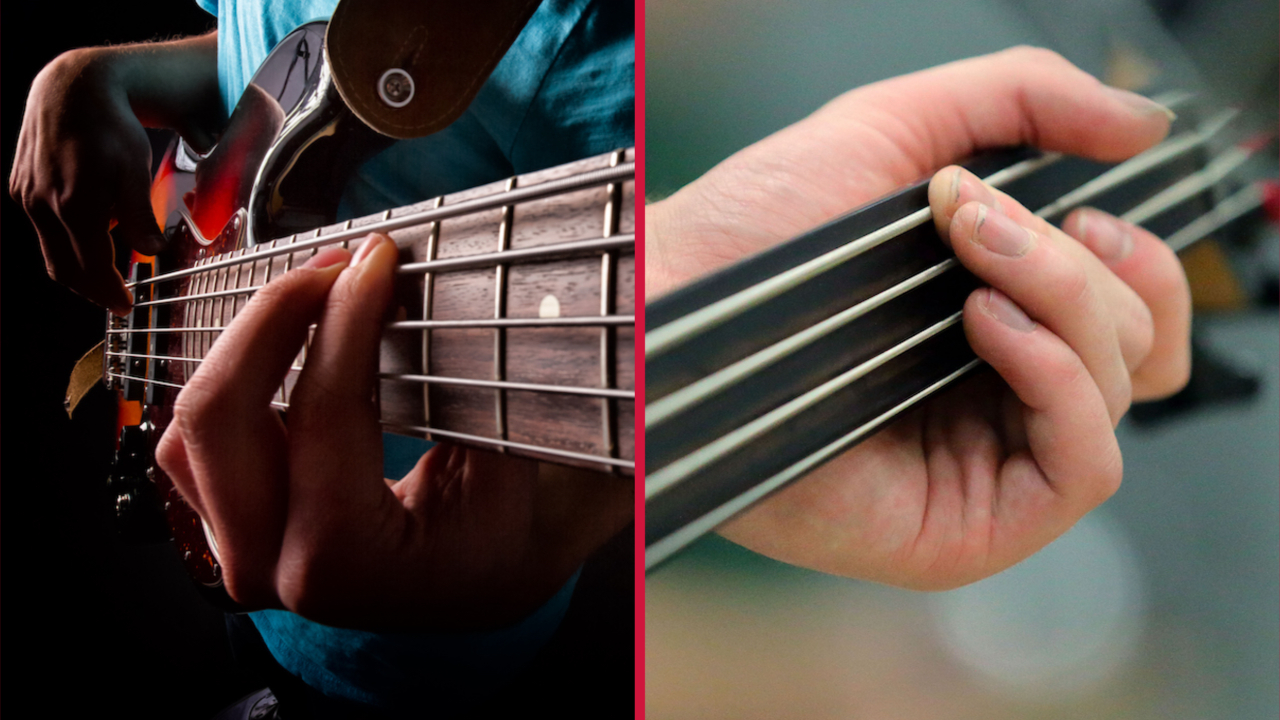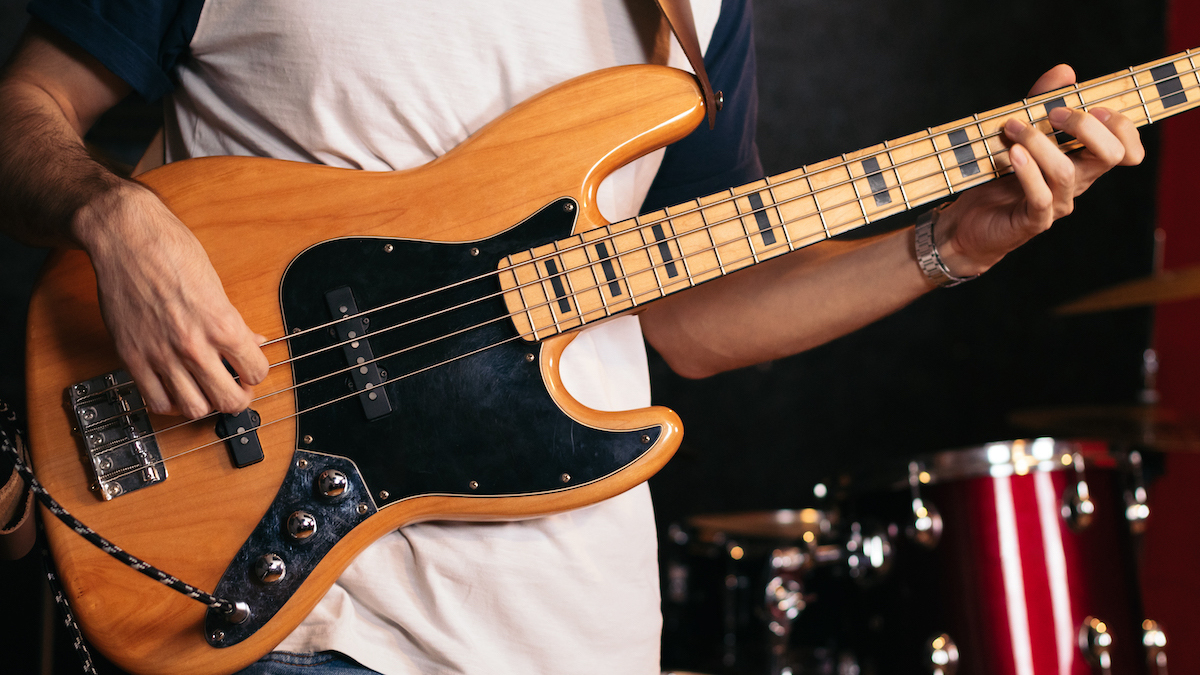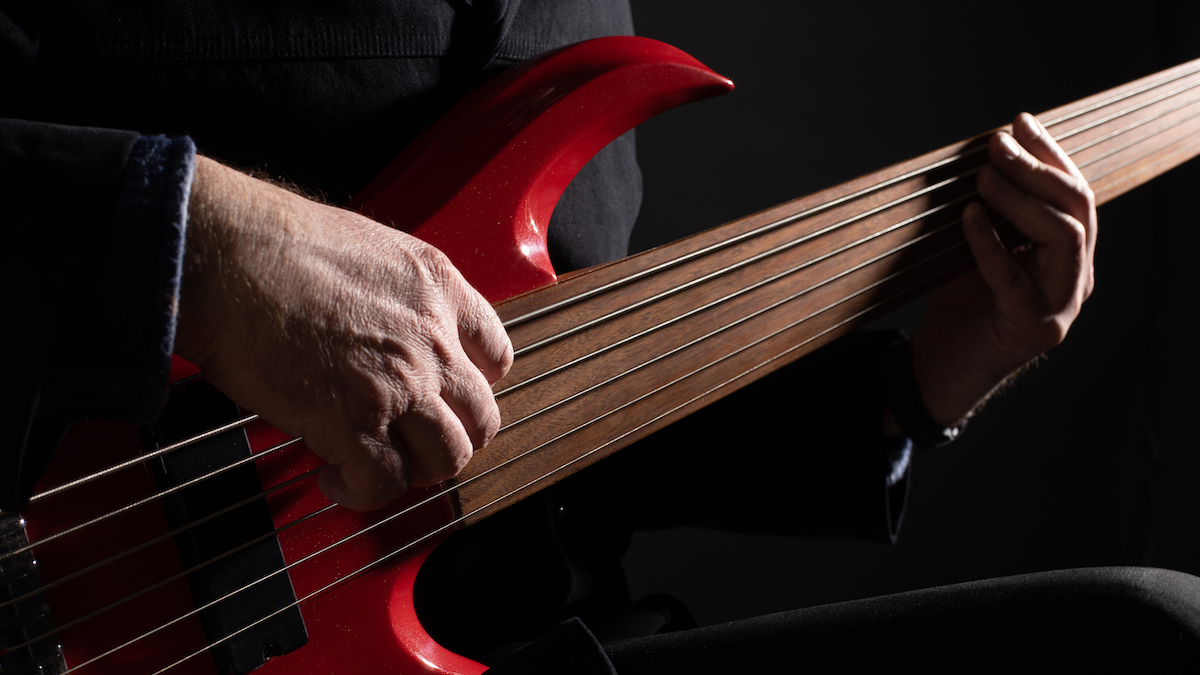Fretted vs. fretless bass: What’s the difference?
Understand the pros and cons and work out which type is right for you and your playing style

When it comes to bass guitars, players often face the decision between fretted and fretless instruments. Both options offer distinct advantages and considerations, and both have influencing factors such as sound, functionality, price, convenience and maintenance.
Here we will explore the key differences between fretted and fretless basses, examine each style's pros and cons and provide guidance on which type may best suit different players.
Whether you're a seasoned bassist or exploring the instrument for the first time, understanding these differences will empower you to make an informed choice that aligns with your musical preferences and playing style.
1. Features and Functionality
Fretted basses are equipped with metal frets embedded along the fingerboard. These frets act as markers, dividing the neck into specific intervals, making it easier to find precise notes and play in tune. Fretted basses offer beginners a valuable tool for learning and developing proper finger placement. Additionally, the presence of frets enables players to achieve consistent intonation and execute techniques like bends, vibrato, and hammer-ons more accurately. Fretted basses are particularly well-suited to genres that require clear articulation and defined note separation, such as rock, pop and funk.
Fretted basses offer beginners a valuable tool for learning and developing proper finger placement
In contrast, fretless basses lack metal frets, providing a smooth, uninterrupted fingerboard surface. Without the frets as reference points, players must rely on their ears and muscle memory to find the correct pitch. This characteristic offers a unique tonal expressiveness, enabling smooth glissandos, slides, and microtonal nuances. Fretless basses are favored in genres like jazz, fusion, Latin, and world music, where players seek rich, singing tones and the ability to explore melodic improvisation. They provide a more organic and vocal-like quality, allowing players to infuse their music with personal expression.

2. Sound
The presence of frets on a bass guitar contributes to a bright and percussive sound. The frets provide a consistent point of contact between the strings and the fingerboard, resulting in more attack and sustain. This characteristic makes fretted basses ideal for genres that require a strong rhythmic foundation, such as rock and funk. The frets also facilitate accurate intonation across the entire fingerboard, ensuring each note is precisely in tune.
The absence of frets gives fretless basses a distinctive and smooth sound. The lack of physical barriers allows for a broader range of tonal possibilities, with players able to create sliding notes, glissandos and microtonal inflections. Fretless basses produce a warm, rounded tone with a singing quality, making them well-suited for melodic playing and soloing. The increased sustain enhances expressiveness, enabling players to evoke a more emotive and intimate sound, often associated with jazz and fusion genres.
Get The Pick Newsletter
All the latest guitar news, interviews, lessons, reviews, deals and more, direct to your inbox!
3. Price
In general, fretted basses tend to be more affordable than their fretless counterparts. This price difference is primarily due to the additional labor and craftsmanship required to produce a fretless instrument. Fretting a bass involves the installation and leveling of frets, which adds complexity to the manufacturing process. As a result, fretted basses are more widely available in various price ranges, catering to different budgets and skill levels. Entry-level fretted basses offer excellent value for beginners and those on a tight budget, while high-end models provide professional-grade craftsmanship and premium features for experienced players.
The specialized nature of fretless bass construction often makes them relatively more expensive compared to fretted basses. Crafting a fretless fingerboard requires meticulous attention to detail, ensuring a smooth playing surface and precise intonation. The additional labor, materials and expertise involved contribute to the higher price range. However, fretless bass enthusiasts recognize the investment as a gateway to unparalleled tonal versatility and expressive possibilities. While some affordable fretless options are available, players seeking exceptional craftsmanship and tonal quality may find it necessary to invest in higher-end instruments.

4. Convenience
The presence of frets on a bass guitar provides immediate reference points for finger placement, making it easier to find and play specific notes. This convenience is particularly advantageous for beginners, as it aids in the development of muscle memory and intonation skills. Additionally, the frets enable consistent note spacing, allowing for quicker execution of techniques such as slides and bends. Fretted basses are generally considered more forgiving in terms of intonation, as the frets ensure precise pitch alignment, even for less experienced players.
Playing a fretless bass requires a higher degree of finger precision and ear training
Playing a fretless bass requires a higher degree of finger precision and ear training. The absence of frets demands accurate finger placement to produce the desired pitch, necessitating a more refined technique and heightened awareness of intonation. While this learning curve can be initially challenging, it rewards players with increased control and expressiveness over time. The lack of frets also means that string pressure must be controlled more precisely to prevent unintentional buzzing or note muting. While experienced players can achieve exceptional results with a fretless bass, beginners may find the learning process more demanding.
5. Maintenance
Fretted basses generally require less maintenance than their fretless counterparts. The metal frets provide a protective barrier between the strings and the fingerboard, reducing string wear and minimizing the accumulation of dirt and grime. Cleaning and maintaining a fretted bass primarily involves routine string changes, occasional fret polishing and regular adjustments to the instrument's set-up (e.g. truss rod, action and intonation). Players can handle many of these maintenance tasks themselves with basic tools or seek assistance from a professional technician for more complex adjustments.
Fretless basses require additional care and maintenance due to the unprotected nature of the fingerboard. The absence of frets means that the strings come into direct contact with the wood, resulting in increased string wear and the potential for fingerboard damage. Regular cleaning and conditioning of the fingerboard is essential to preserve its integrity and ensure a smooth playing surface. Moreover, players must pay careful attention to string choice and technique to minimize excessive string pressure that could wear down the fingerboard. Additionally, periodic monitoring of intonation and adjustment of the bridge and nut may be necessary to maintain an accurate pitch. Seeking professional assistance for fingerboard maintenance and set-up adjustments is recommended.
Conclusion
In the realm of bass guitars, the choice between fretted and fretless instruments ultimately boils down to personal preference, musical style and desired tonal characteristics. Fretted basses offer convenience, affordability and enhanced note definition, making them a popular choice for players in genres that require a strong rhythmic foundation. On the other hand, fretless basses provide unparalleled tonal expressiveness, facilitating fluid slides and emotive melodies, making them particularly suited to genres that prioritize melodic improvisation. Regardless of your choice, both fretted and fretless basses offer their own unique sonic and creative possibilities, expanding the boundaries of your musical journey.
Chris Corfield is a journalist with over 12 years of experience writing for some of the music world's biggest brands including Orange Amplification, MusicRadar, Guitar World, Total Guitar and Dawsons Music. Chris loves getting nerdy about everything from guitar gear and synths, to microphones and music production hardware.
“An esoteric boutique vibe, superb ergonomics and a powerful, unique preamp – Tobias is back”: Tobias Growler IV review
“Affordable versions of the three best basses I've ever held in my hands”: Sterling by Music Man completes its trilogy of Joe Dart signature models with a trio of made-to-order basses that cost less than $500










